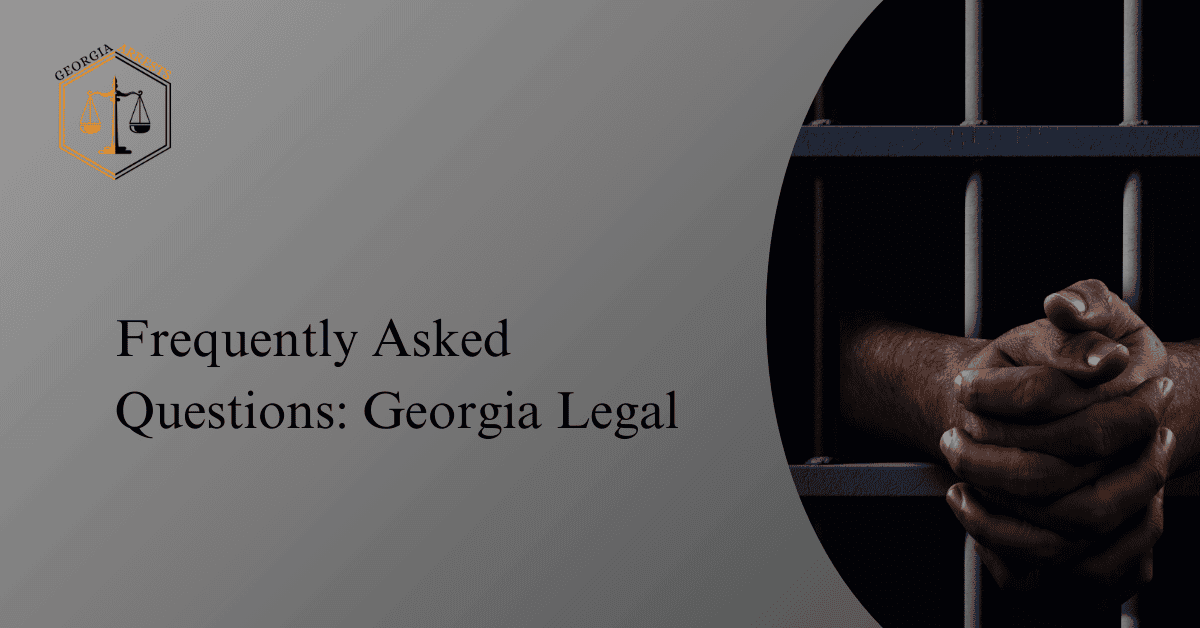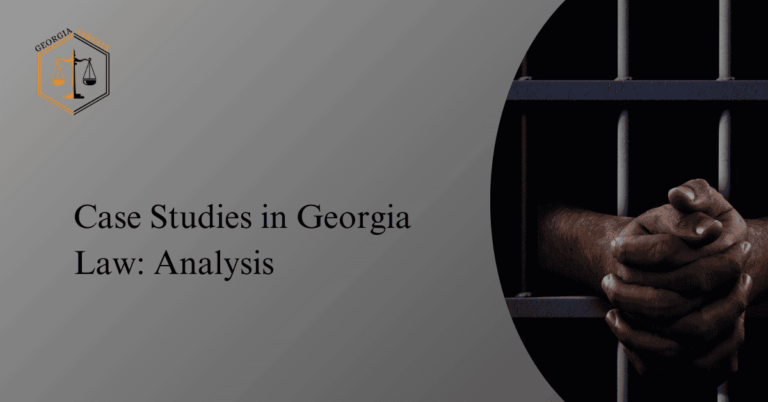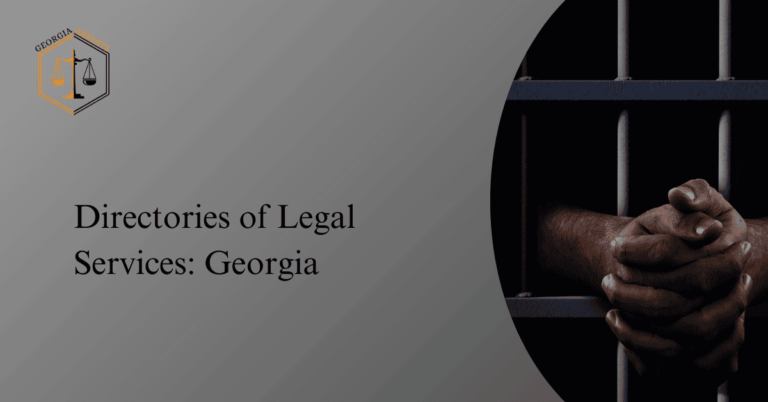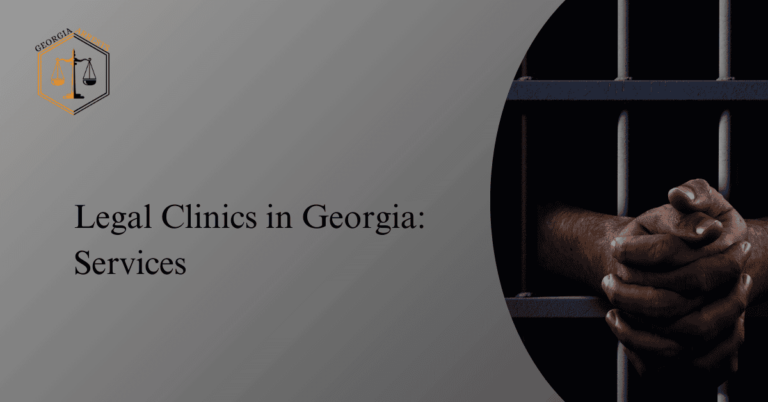Frequently Asked Questions: Georgia Legal
Georgia Legal. Georgia’s legal system is a complex yet integral part of the state’s governance. Understanding the legal framework in Georgia is essential for residents and visitors alike. Whether you are a newcomer or a long-time resident, having a grasp of Georgia’s legal landscape can help navigate various aspects of daily life.
From traffic laws to property regulations, Georgia’s legal system encompasses a wide range of areas. Knowing your rights and responsibilities under Georgia law is crucial for maintaining a harmonious and lawful existence. Stay informed about the legal nuances of Georgia to ensure compliance and peace of mind in your day-to-day interactions.
Overview of Georgia Legal System
The Georgia legal system is a complex and intricate system that governs laws and regulations within the state. Understanding the legal framework in Georgia is essential for residents and visitors alike to navigate the legal landscape effectively. From criminal laws to civil regulations, Georgia’s legal system plays a crucial role in upholding justice and order within the state.
Importance of Georgia Laws
Having a comprehensive understanding of Georgia laws is vital for individuals to protect their rights and uphold their responsibilities. By familiarizing themselves with the legal nuances of the state, residents can ensure compliance with the law and avoid potential legal pitfalls.
Commonly Asked Questions About Traffic Laws
One of the most common areas of concern for individuals in Georgia is traffic laws. Understanding the rules of the road and regulations governing traffic can help prevent accidents, fines, and legal issues. From speeding violations to DUI charges, familiarizing oneself with Georgia’s traffic laws is essential for safe and legal driving.
Property Regulations in Georgia Explained
Property regulations in Georgia cover a wide range of topics, including landlord-tenant laws, property taxes, and zoning regulations. Knowing the ins and outs of property regulations can help individuals protect their property rights and navigate real estate transactions with ease.
Know Your Rights Under Georgia Law
Your rights under Georgia law is crucial for protecting yourself in legal situations. Whether it’s knowing your rights during a police encounter or understanding your rights as a tenant, having a firm grasp of Georgia’s legal framework can empower individuals to advocate for themselves effectively.
Responsibilities of Georgia Residents and Visitors
Residents and visitors in Georgia have certain responsibilities under the law, ranging from paying taxes to obeying local ordinances. By knowing and fulfilling these responsibilities, individuals can contribute to a safe and harmonious community environment.
Stay Informed: Legal Nuances in Georgia
Staying informed about legal nuances in Georgia is essential for individuals to stay on top of legal changes and updates. From new legislation to court rulings, keeping abreast of legal developments can help individuals make informed decisions and protect their rights.
Ensuring Compliance with Georgia Laws
Ensuring compliance with Georgia laws is paramount for individuals and businesses operating within the state. By following regulations, obtaining necessary permits, and seeking legal guidance when needed, individuals can avoid legal trouble and uphold the integrity of the legal system.
Frequently Asked Questions
Our Frequently Asked Questions section aims to provide comprehensive information on common queries related to Georgia Legal. Below, you will find detailed explanations for each question to enhance your understanding of the topic.
What are the legal requirements for starting a business in Georgia?
Starting a business in Georgia requires adhering to certain legal requirements, such as registering your business entity with the Secretary of State, obtaining necessary licenses and permits, and complying with state tax regulations. It is essential to consult with a legal professional to ensure full compliance with all legal obligations.
How can I file for divorce in Georgia?
To file for divorce in Georgia, one of the spouses must have been a resident of the state for at least six months before filing. The process involves submitting a petition for divorce to the appropriate court, serving the other spouse with the petition, and attending court hearings to finalize the divorce settlement. It is advisable to seek legal counsel to navigate the complexities of divorce proceedings.
What are the child custody laws in Georgia?
Child custody laws in Georgia prioritize the best interests of the child when determining custody arrangements. Factors such as the child’s relationship with each parent, the child’s preference (if applicable), and the parents’ ability to provide a stable environment are taken into account. It is recommended to work with a family law attorney to ensure the protection of your parental rights.
How do I create a will in Georgia?
Creating a will in Georgia involves drafting a legally valid document that outlines how you wish to distribute your assets upon your passing. It is crucial to follow the state’s requirements for will execution, such as signing the document in the presence of witnesses. Consulting an estate planning attorney can help you navigate the estate planning process effectively.
What are the steps to expunge a criminal record in Georgia?
Expunging a criminal record in Georgia involves filing a petition with the court to have your conviction removed from public records. Eligibility for expungement depends on the nature of the offense, the completion of any sentencing requirements, and the time passed since the conviction. Seeking guidance from a criminal defense attorney can assist you in pursuing expungement successfully.
How can I challenge a traffic ticket in Georgia?
To challenge a traffic ticket in Georgia, you can either pay the fine or contest the citation in court. Presenting evidence to support your defense, such as witness statements or documentation, can strengthen your case. It is advisable to seek legal advice before proceeding with a traffic ticket challenge to understand your legal options and potential outcomes.







